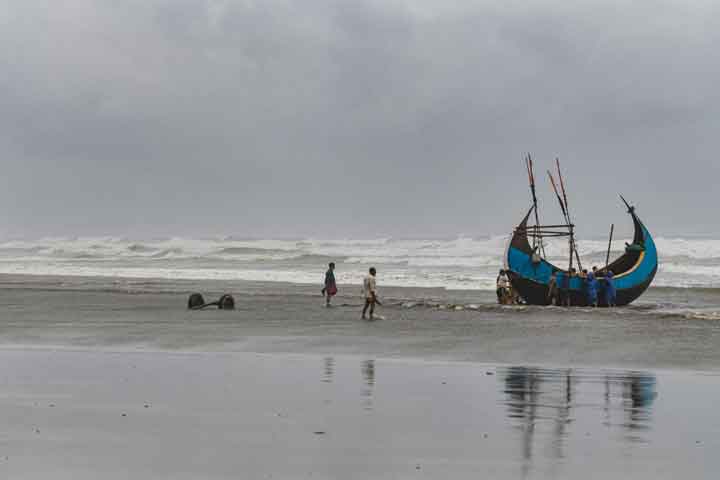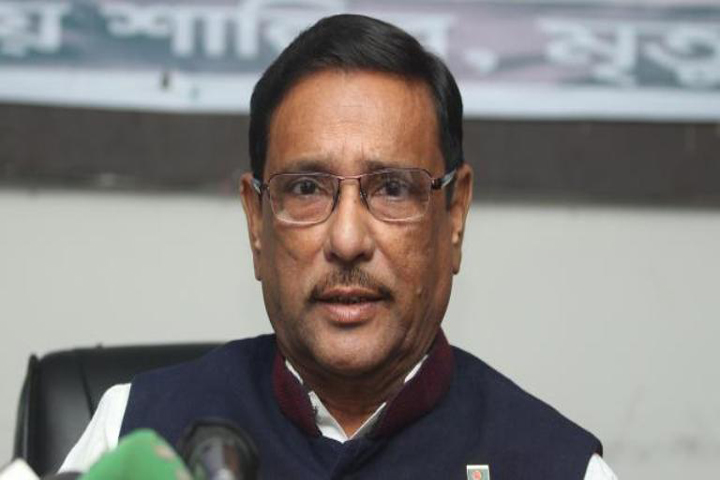India Deployed Floating Border Outpost with Women Constables Along Indo-Bangladesh Border
Deep inside the Sundarbans, aproximately 50 kms from Dhamakhali village in West Bengal’s North 24 Parganas district, a floating border outpost (BOP) manned by the Border Security Force (BSF) guards the waters near the India-Bangladesh border. But it is not the location of BOP Ganga that makes this border outpost unique: it is its 11-member patrol team entirely comprising women constables, the first of its kind in India.
The Border Security Force’s (BSF) South Bengal Frontier headquarters announced that a team of female constables, known as Mahila Praharis, have been deployed for the first time in the organization’s history to patrol and operate a floating border outpost in the challenging terrain of the Sundarbans. Their deployment is expected to be particularly effective in preventing smuggling by female smugglers.
These floating BOPs come under the water wing of the BSF, which operates in India’s riverine borders in the North Bengal and South Bengal frontier, the Tripura, Mizoram and Cachar frontiers, the Jammu frontier, the Punjab frontier and the Gujarat frontier.
Seema, The platoon commander, stated that the conditions at the border outpost are challenging but that it is adequately stocked for the team’s daily needs. She also mentioned that the team is equipped with INSAS rifles.
In May this year, Union Home Minister Amit Shah launched a boat ambulance and six floating border outposts (BOPs) in West Bengal as part of an effort to increase surveillance in the Sundarbans region, particularly along the India-Bangladesh border. These BOPs are part of a fleet of nine vessels being custom-built for the water wing of the Border Security Force (BSF) by Cochin Shipyard Limited and classed by the Indian Register of Shipping. BSF officials on board BOP Ganga told Indian Express that these vessels were designed with stowage arrangements for four fast patrol boats that are integral to the BSF’s search and seizure operations in the waters of the Sundarbans. The vessels, 46 metres in length, also come fully equipped for operations that a border outpost would require if it were on land, officials said.
The women constables were deployed on these floating BOPs in the Sundarbans in May this year, and for three of the constables in the platoon, this is their first posting after they completed their training programme. “I am from Bihar and for the first few weeks in this region, I was posted on the land border. A few months ago, I was told that this floating BOP would be my first posting and I was curious about what it would be like to be on an outpost in the middle of the water,” said Savita, who joined the force only last year.
While three constables are new to the job and BSF’s operations, all others on the BOP have several years of experience under their belt. “While this is a new posting for us, surrounded by water, we have an average of eight to 10 years of experience in the platoon. We have been deployed in other parts of the country like at the Punjab border, the West Bengal border etc. So BSF duties are not new,” explained platoon commander sub-inspector Seema.
“We did have discussions in the days just before deployment that this was going to be a challenging environment. We are not really connected to the mainland, but our training is such that we are able to survive,” she added. The Indo-Bangladesh border is complex, BSF officials said, particularly in the Sundarbans, because the area is a combination of riverine areas and dense mangrove forests that receive heavy rainfall. A significant part of this region is also demarcated as the Sundarban National Park, which is home to diverse species of flora and fauna that face constant threats from poachers. Many parts of the Sundarbans are also inaccessible by road.
Several smaller tributaries and creeks cut through the Sundarbans, which are traversed daily by fisherfolk, traders and island inhabitants. “Although this is an important trade route, the proximity to the international border with Bangladesh means that it is a sensitive area and is monitored by the BSF,” an official told indianexpress.com, requesting anonymity.
While preventing unlawful entry into Indian territory is the BSF’s main responsibility, its constables have found themselves addressing another issue: assisting fishermen stranded in the waters due to seasickness and tackling poachers using waterways to enter the Sundarban National Park.
Constable Sumita Mondal has spent nearly a decade in the BSF now and is familiar with the challenges that come with a posting at the India-Bangladesh border. “It is not just illegal smuggling that is a concern here. I have seen incidents where Bangladeshi fishermen attack Indian fishing boats, get into violent fights and steal fish and crabs from boats and head back to Bangladesh,” Mondal said. These incidents happen more frequently when the catch may be low. “So these floating BOPs are useful in stopping those kinds of crimes. But the smugglers have a network of informants, usually connected with fishing boats out in the waters. They pass on information about the location of the smaller patrol boats, as well as information about seizures that we conduct,” she added.
While the BSF has marked the deployment of a platoon of Mahila Praharis for border patrolling and operation as one that is historic, some veterans interviewed for this report have questioned whether this is an adequate use of resources. While the Sundarbans is a challenging area to monitor and guard, BSF’s extensive work over the years here has meant that in the past six months, the floating BOP has not made any seizures or apprehensions, constables on BOP Ganga confirmed in interviews.
“The women constables are a part of patrolling and are there for operational purposes. They do not man the boat because the boats are commandeered by the water wing,” said Sanjiv Krishan Sood, Additional Director General, BSF (Retd). But Sood believes that the relatively fewer numbers of women constables in the force make them a precious resource that ought to be deployed elsewhere where they can contribute more effectively.
29 Dec 2022,18:43
















 Live Tv
Live Tv




